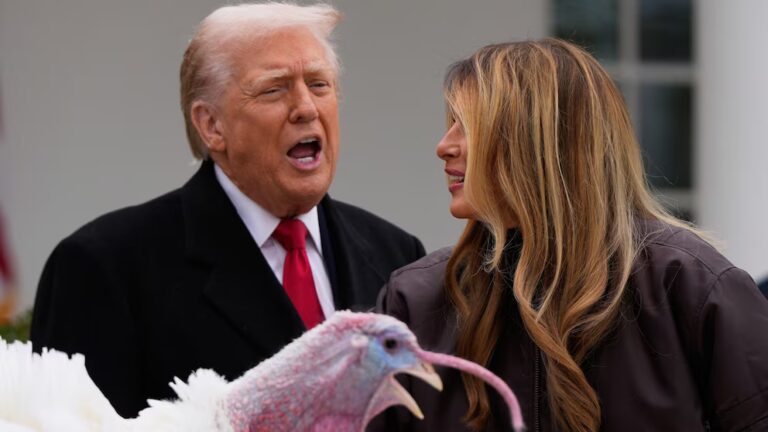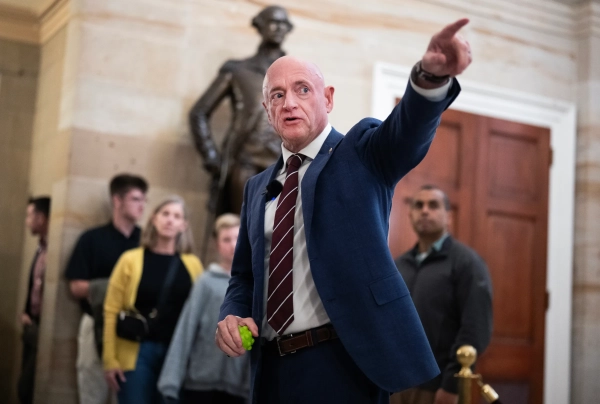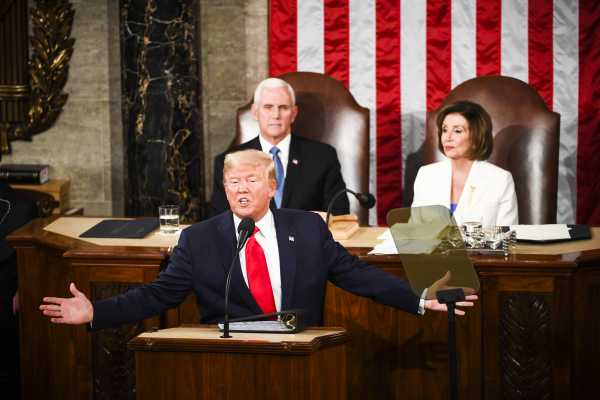
President Donald Trump opened his State of the Union speech touting strong economic conditions for black Americans and their decorous record serving their country — before later announcing in the same speech that he would award a racist radio talk show host the Presidential Medal of Freedom and concluding on a very whitewashed version of US history.
It was a classic bit of Trumpian whiplash. The president loves to talk out of one side of his mouth, touting the economic gains for many Americans, including black people, while he’s been in the White House, before he starts talking out of the other, outlining a revanchist and white-centric worldview that thoroughly informs his politics.
As he opened his speech reviewing the state of the US economy, Trump quickly turned his attention to the fortunes of minorities — something he’s been emphasizing more in the runup to his 2020 reelection campaign.
“The unemployment rates for African Americans, Hispanic Americans, and Asian Americans have reached the lowest levels in history. African American youth unemployment has reached an all-time low,” Trump said. “African American poverty has declined to the lowest rate ever recorded.” (As always with Trump, those stats are a little more complicated than he let on: The improvement really started under Barack Obama.)
A bit later, he singled out one of the guests at the speech as well: Charles McGee, one of the last surviving Tuskegee Airmen, the first black fighter pilots.
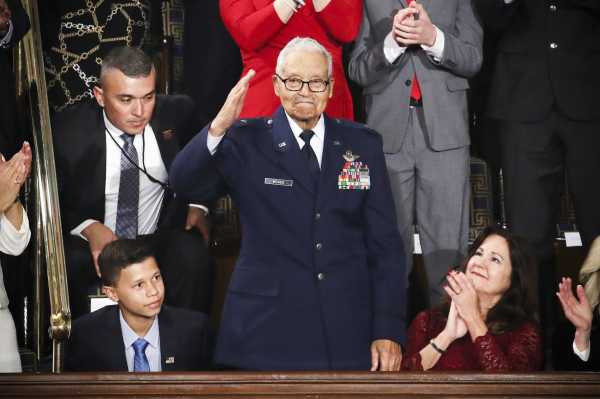
But a few token words can’t erase Trump’s history of birtherism, his equivocation between white nationalists and their opponents in Charlottesville, Virginia, in 2017, or many of the other words he’s said (“shithole countries”) and deeds he’s done (housing discrimination in the ’70s).
And later in his speech, Trump reminded the audience that any aspirational rhetoric on race coming from him is probably empty.
Trump decided to honor a racially divisive conservative talk show host in his SOTU
First, Trump announced he would give Rush Limbaugh, the conservative radio talk show host in attendance who was recently diagnosed with lung cancer, the Presidential Medal of Freedom. It is, as Trump noted, the highest civilian honor in the United States.
“Thank you for your decades of tireless devotion to our country,” Trump said. “Rush, in recognition of all that you have done for our nation, the millions of people a day that you speak to and inspire, and all of the incredible work that you have done for charity, I am proud to announce tonight that you will be receiving our country’s highest civilian honor, the Presidential Medal of Freedom.”
Trump is far from the first president to bestow this honor on a, shall we say, unsavory character — George W. Bush, for example, chose a radio talk show host with retrograde views on race for the same award.
As Vox’s Laura McGann reviewed, Trump took the mighty stage of the State of the Union address, before Congress and a national television audience, and gave “one of America’s most prominent racists” official government recognization.
Here is, via McGann, an abridged history of Limbaugh’s comments on race:
And then came the concluding section of Trump’s speech.
Trump ended his State of the Union with a very white history of America
“As the world bears witness tonight, America is a land of heroes,” Trump said as he wound down his address. “This is the place where greatness is born, where destinies are forged, and where legends come to life.”
He then ran through some of that rich history and the characters who shaped it. As he named the illustrious names of US history — Theodore Roosevelt, Abraham Lincoln, Neil Armstrong — he found time for a few black faces (Frederick Douglass, Harriet Tubman), but he was clearly evoking a very specific kind of history.
“This is the country where children learn names like Wyatt Earp, Davy Crockett, and Annie Oakley. This is the place where the pilgrims landed at Plymouth and where Texas patriots made their last stand at the Alamo,” Trump said. “The American nation was carved out of the vast frontier by the toughest, strongest, fiercest, and most determined men and women ever to walk the face of the earth.”
As Vox’s Jessica Machado wrote, Trump was telling a capital-W White version of American history:
Trump wants to make token outreach to black voters without losing his base
As study after study has shown, Trump won in 2016 in large part because he attracted white voters who felt some kind of race-based resentment or alienation. He’ll need those voters again in 2020.
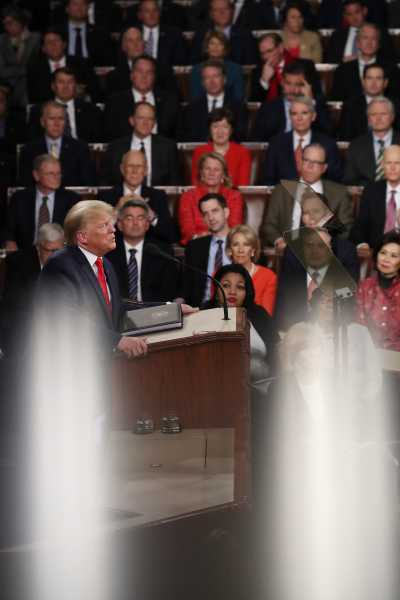
But that is also a limited pool of support, and Trump lost minority voters by huge margins. He and his campaign have made a big show of trying to attract black voters heading into his reelection bid.
“We’re going to campaign for every last African-American vote in 2020,” Trump said in November 2019. “We’ve done more for African-Americans in three years than the broken Washington establishment has done in more than 30 years.”
Now, so far, the effects of any Trump black outreach have been minimal. Gallup pegged his support among black voters at 10 percent just a few months ago. Other surveys have found black voters overwhelmingly support a Democrat, any Democrat, against Trump in the 2020 election and most black Americans think Trump is racist.
Still, even shaving just a bit off of those margins could go a long way toward helping him win a second term. That’s why we will continue to hear overtures like those Trump made at his State of the Union speech. But he also seems likely to continue reminding voters, of all types, how much of his political movement is founded explicitly in white identity. It seems he just can’t help it.
Sourse: vox.com

